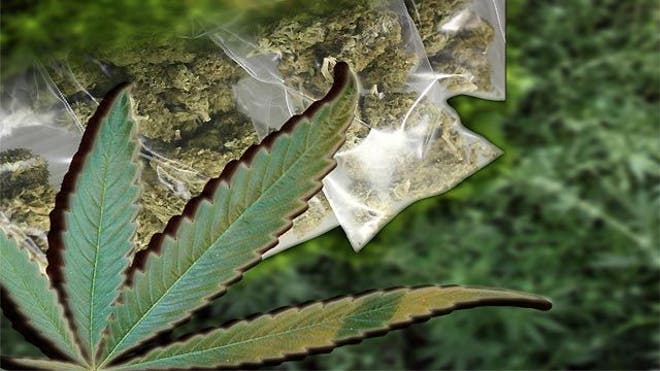“Readers recently joined in a lively debate about the use of medicinal marijuana. In Clinical Decisions,1 an interactive feature in which experts discuss a controversial topic and readers vote and post comments, we presented the case of Marilyn, a 68-year-old woman with metastatic breast cancer. We asked whether she should be prescribed marijuana to help alleviate her symptoms. To frame this issue, we invited experts to present opposing viewpoints about the medicinal use of marijuana. J. Michael Bostwick, M.D., a professor of psychiatry at Mayo Clinic, proposed the use of marijuana “only when conservative options have failed for fully informed patients treated in ongoing therapeutic relationships.” Gary M. Reisfield, M.D., from the University of Florida, certified in anesthesiology and pain medicine, and Robert L. DuPont, M.D., a clinical professor of psychiatry at Georgetown Medical School, provide a counterpoint, concluding that “there is little scientific basis” for physicians to endorse smoked marijuana as a medical therapy.
We were surprised by the outcome of polling and comments, with 76% of all votes in favor of the use of marijuana for medicinal purposes — even though marijuana use is illegal in most countries. A total of 1446 votes were cast from 72 countries and 56 states and provinces in North America, and 118 comments were posted. However, despite the global participation, the vast majority of votes (1063) came from the United States, Canada, and Mexico. Given that North America represents only a minority of the general online readership of the Journal, this skew in voting suggests that the subject of this particular Clinical Decisions stirs more passion among readers from North America than among those residing elsewhere. Analysis of voting across all regions of North America showed that 76% of voters supported medicinal marijuana. Each state and province with at least 10 participants casting votes had more than 50% support for medicinal marijuana except Utah. In Utah, only 1% of 76 voters supported medicinal marijuana. Pennsylvania represented the opposite extreme, with 96% of 107 votes in support of medicinal marijuana.
Outside North America, we received the greatest participation from countries in Latin America and Europe, and overall results were similar to those of North America, with 78% of voters supporting the use of medicinal marijuana. All countries with 10 or more voters worldwide were at or above 50% in favor. There were only 43 votes from Asia and 7 votes from Africa, suggesting that in those continents, this topic does not resonate as much as other issues.
Where does this strong support for medicinal marijuana come from? Your comments show that individual perspectives were as polarized as the experts’ opinions. Physicians in favor of medicinal marijuana often focused on our responsibility as caregivers to alleviate suffering. Many pointed out the known dangers of prescription narcotics, supported patient choice, or described personal experience with patients who benefited from the use of marijuana. Those who opposed the use of medicinal marijuana targeted the lack of evidence, the lack of provenance, inconsistency of dosage, and concern about side effects, including psychosis. Common in this debate was the question of whether marijuana even belongs within the purview of physicians or whether the substance should be legalized and patients allowed to decide for themselves whether to make use of it.
In sum, the majority of clinicians would recommend the use of medicinal marijuana in certain circumstances. Large numbers of voices from all camps called for more research to move the discussion toward a stronger basis of evidence.”
http://www.nejm.org/doi/full/10.1056/NEJMclde1305159
“New England Journal of Medicine Endorses Medical Marijuana; San Francisco Medical Society Releases Study; New York Times Editorial Welcomes Debate” http://ndsn.org/feb97/nejm.html




